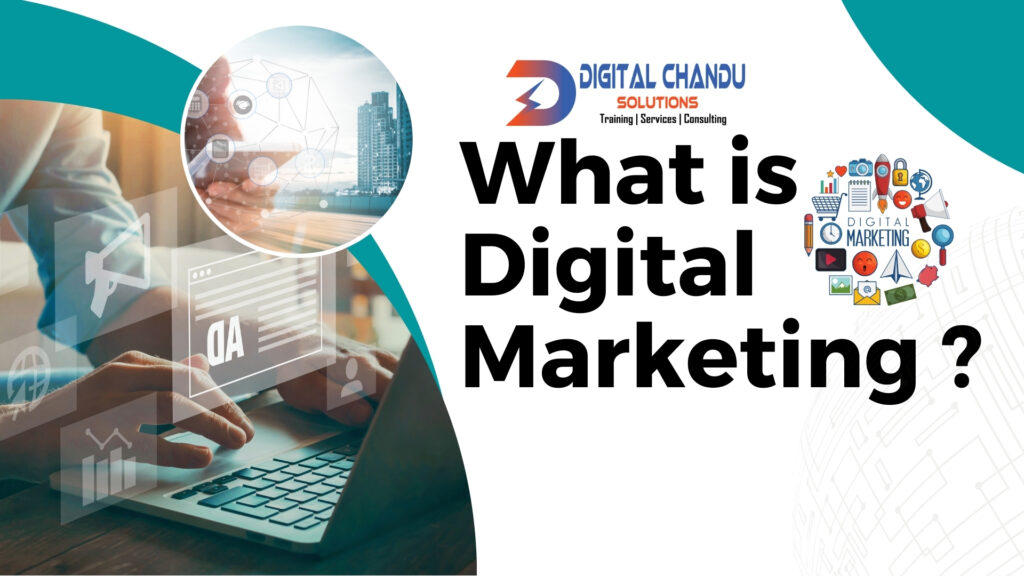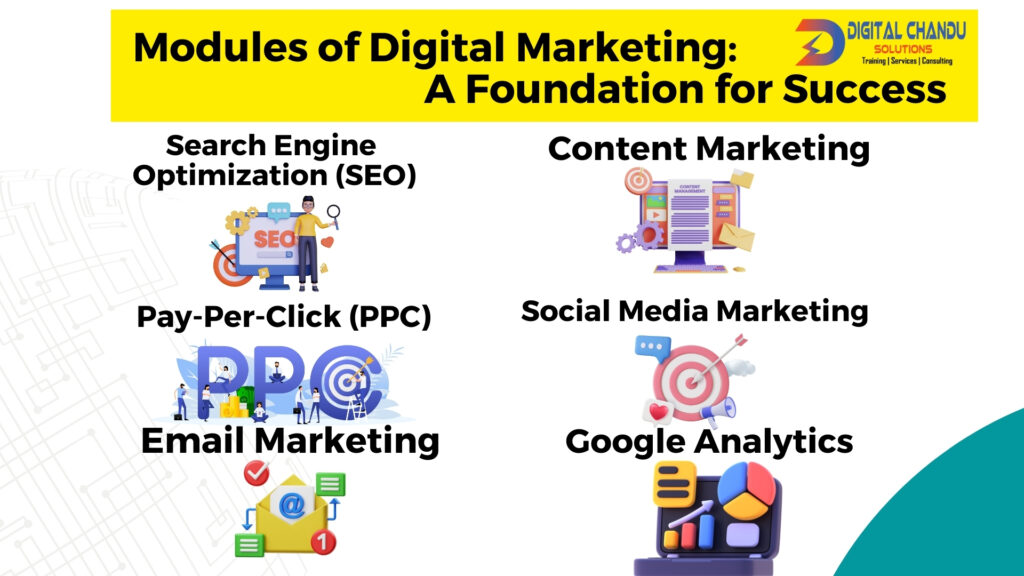Ultimate Guide to Understanding What Is Digital Marketing
What Is Digital Marketing ?
Digital marketing encompasses a variety of marketing tactics and technologies used to reach consumers online. As a significant component of modern marketing strategies, it leverages the internet and digital devices to distribute promotional messages and measure their impact through the customer journey. The depth of digital marketing can be explored through its key components, strategies, and the distinct advantages it offers over traditional marketing methods.
This guide aims to unpack the various facets of digital marketing, compare it with traditional marketing methods, and explore its future potential, including the role of AI.
what is online marketing
Online marketing, often synonymous with digital marketing, refers to the strategies and techniques to promote products, services, and brands online. It encompasses a wide range of activities aimed at reaching and engaging with consumers through digital channels. The core objective is to connect with potential and existing customers where they spend significant time: online.

what to know about digital marketing
Reach and Scale: Digital marketing allows for a global reach, enabling brands to connect with audiences worldwide easily. Traditional marketing is often limited by geography and incurs higher costs for broad dissemination.
Targeting and Personalization: Digital platforms offer sophisticated targeting options based on demographics, interests, behaviour, and more, allowing for highly personalized marketing campaigns. Traditional marketing often relies on broader targeting methods, such as demographics, with limited personalization.
Interactivity: Digital marketing facilitates two-way communication between brands and consumers through social media, email, and other platforms. This interactivity is less prevalent in traditional marketing, which tends to be one-way (e.g., TV ads and billboards).
Data and Analytics: The digital landscape provides immediate access to data and analytics, enabling marketers to measure campaign performance in real time and make data-driven decisions. Traditional marketing methods typically offer less direct and less detailed feedback.
Cost Efficiency: Digital marketing can be more cost-effective, offering lower entry costs and more control over budget allocation. Traditional marketing methods like print or broadcast media often require significant upfront investment.
Content Flexibility: Digital marketing offers the flexibility to adjust and optimize content and strategy in real time based on performance and audience engagement. Traditional marketing campaigns are generally fixed and more burdensome to modify once launched.
Sustainability: Digital marketing is more environmentally friendly, reducing the need for physical materials. Traditional marketing often relies on physical mediums, such as paper and plastic, which have a more significant environmental impact.
The Evolution of Digital Marketing
The concept of digital marketing has evolved significantly since its inception. Initially, it was about establishing a presence on the web. However, as digital platforms increased and technology advanced, digital marketing has become a sophisticated and integral part of business strategy. It is not just about being online; it’s about being found, engaging with your audience, and converting their interest into loyalty and sales.
Key Components of Digital Marketing
The realm of digital marketing is vast, consisting of several key components that together create a cohesive and effective marketing strategy:
- Search Engine Optimization (SEO): A critical aspect of digital marketing, SEO involves optimizing website content to rank higher in search engine results, driving organic traffic, and increasing visibility.
- Content Marketing: This involves creating and distributing valuable, relevant, and consistent content to attract and retain a clearly defined audience, ultimately driving profitable customer action.
- Social Media Marketing (SMM): Utilizing social media platforms to connect with your audience, build your brand, increase sales, and drive website traffic.
- Pay-Per-Click (PPC): A model of internet marketing in which advertisers pay a fee each time one of their ads is clicked, essentially buying visits to their site.
- Email Marketing: The use of email to promote products or services while developing relationships with potential customers or clients.
- Affiliate Marketing: A performance-based marketing strategy where a business rewards one or more affiliates for each visitor or customer brought by the affiliate’s marketing efforts.
- Influencer Marketing: Collaborating with influencers to amplify your brand message to a larger market.
- Mobile Marketing: Tailoring marketing strategies for mobile users, optimizing content and ads for mobile devices to reach audiences on their smartphones and tablets.

The Importance of Digital Marketing: A Comparative Perspective
Digital marketing offers unparalleled advantages over traditional marketing. Its ability to precisely target specific demographics and measure results in real time makes it a powerful tool for businesses. Unlike conventional marketing, which often relies on a one-size-fits-all approach, digital marketing strategies can be tailored to reach and resonate with niche audiences
Why Digital Marketing is Good for the Future
The future of business is digital. Digital marketing allows companies to adapt quickly to market changes as technology advances. This agility is crucial for survival and growth in the digital age, making digital marketing an indispensable strategy for future success.
The Business of Digital Marketing
Digital marketing is not just a strategy but a thriving industry. It has created new business models, from digital agencies to marketing automation platforms. This ecosystem supports many businesses, from startups to multinational corporations, providing them with the tools to reach global audiences.
Benefits of Digital Marketing
Digital marketing’s advantages over traditional marketing are clear and varied:
- Global Reach: Digital marketing allows businesses to reach a global audience with ease, surpassing the geographical limitations of traditional marketing.
- Targeting and Personalization: Advanced targeting options enable highly personalized marketing campaigns, connecting with consumers based on specific interests, behaviors, and demographics.
- Cost Efficiency: With lower entry costs and precise budget control, digital marketing is more cost-effective than traditional methods.
- Data and Analytics: Real-time data and analytics offer insights into campaign performance, enabling quick adjustments and informed decision-making.
- Content Flexibility: Digital platforms allow for the rapid adjustment and optimization of marketing content, catering to real-time audience feedback and engagement.
- Sustainability: By reducing the need for physical materials, digital marketing is a more environmentally friendly approach than traditional marketing methods.
Digital Marketing Designations:
Careers in the Digital Age
Digital marketing offers a plethora of career opportunities, including:
Digital Marketing Manager
SEO Specialist
Content Marketing Manager
Social Media Manager
PPC Analyst
Growth in Digital Marketing
The digital marketing industry is experiencing exponential growth. With increasing internet penetration and the proliferation of digital devices, businesses are investing heavily in digital marketing to stay competitive.
Can AI replace Digital Marketing?
While AI and automation are making inroads into digital marketing, the human element remains irreplaceable. AI can enhance efficiency and personalization, but the creative and strategic aspects of marketing still require the human touch. However, professionals in the field must adapt to these changes, incorporating AI tools to enhance their strategies.
The Unstoppable Rise of Digital Marketing
Digital marketing has reshaped the marketing landscape and paved the way for future innovations. Its importance cannot be overstated, offering businesses a pathway to reach and engage with audiences on a global scale. As we look to the future, embracing digital marketing and its evolving technologies will be crucial for success. The digital marketing journey is far from over; it’s just getting started
The unstoppable rise of digital marketing has become a defining feature of the global business landscape over the past few decades. This growth can be attributed to several critical factors, including technological advancements, changing consumer behaviours, and the increasing digitization of society. Below, we’ll explore these factors in detail and discuss the implications and prospects of digital marketing.
Technological Advancements
The evolution of digital marketing is closely tied to the rapid development of technology, particularly the internet and mobile devices. The advent of high-speed internet and the proliferation of smartphones have made digital platforms integral to daily life for billions of people. These technological advancements have allowed marketers to reach consumers with unprecedented precision and efficiency.
- Search Engine Marketing (SEM) and Search Engine Optimization (SEO) have become crucial for businesses looking to increase their visibility online.
- Social Media Marketing has emerged as a powerful tool for engaging with target audiences more effectively and personally.
- Email Marketing continues to be an effective means of direct communication, offering high ROI for marketers.
- Content and Influencer Marketing have gained prominence, leveraging valuable and relevant content to attract and retain a clearly defined audience.
Changing Consumer Behaviors
The digital age has significantly altered how consumers interact with brands and make purchasing decisions. There’s a growing preference for online shopping fueled by the convenience, variety, and competitive pricing available on digital platforms. Consumers also increasingly rely on online reviews and social media recommendations to inform their purchasing choices, highlighting the importance of a solid digital presence for brands.
- Personalization has become a fundamental expectation, with consumers favouring brands that offer tailored experiences and communications.
- Mobile Commerce (m-commerce) is rising as shopping on smartphones and tablets becomes more prevalent.
Increasing Digitization of Society
The digitization of society has laid the groundwork for the rise of digital marketing. Nearly every aspect of daily life and business operations can now be conducted online, from banking and entertainment to education and healthcare. This digital ecosystem creates a fertile ground for digital marketing strategies, as consumers are more accessible than ever.
- Big Data and Analytics are pivotal in understanding consumer behaviour and optimizing marketing strategies.
- Artificial Intelligence (AI) and Machine Learning are being leveraged for scale-based predictive analytics, customer service, and personalized marketing.
Implications and Future Prospects
The implications of digital marketing’s rise are profound, affecting how businesses market their products and services and shaping consumer culture and expectations. As digital marketing continues to evolve, we can anticipate several future trends:
- Increased AI and Machine Learning integration will further personalize consumer experiences and improve marketing efficiency.
- Voice Search and Smart Assistants will become more prominent, influencing SEO strategies and content creation.
- Augmented Reality (AR) and Virtual Reality (VR) will offer new ways for brands to engage with consumers, providing immersive and interactive experiences.
- Privacy and Data Protection will become increasingly important as consumers and regulators demand more transparency and control over personal data

